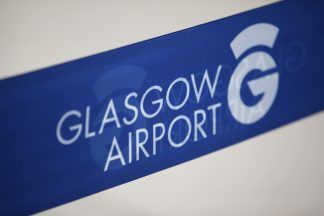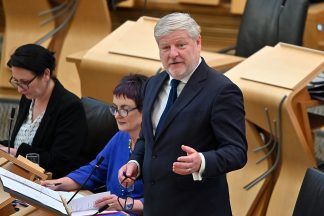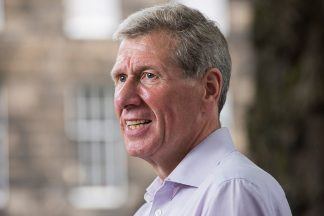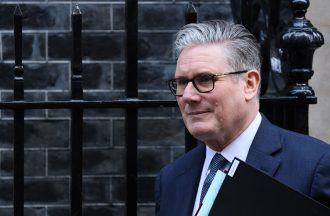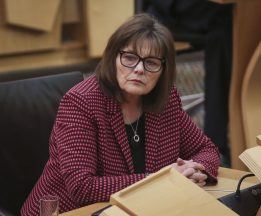The announcement itself might have been a shock, but the first week of the general election campaign has unfolded pretty much as anyone might have predicted.
Babies have been kissed awkwardly, footballs have been kicked badly, high-vis clad crowds have been assembled in factories as backdrops for political speeches – the choreography of a political campaign is very familiar.
And for all the main parties, it’s safe to say that the first week has had about as much impact as you’d expect.
To exhume a phrase that haunted a previous Conservative general election campaign: nothing has changed.
Rishi Sunak caught everyone off guard by calling an election for July 4, none more so than his own party. They’ve given every impression of being unprepared for the fight he started.
There’s been an exodus of Conservatives MPs – not just from parliament, by those declaring they won’t be standing to defend their seats, but also from the country, by those like the Northern Ireland minister Steve Baker, who went on his Greek half-term holiday regardless of the election.
It’s left the party with upwards of 150 people to find for the thankless task of being a Conservative candidate in mostly unwinnable seats. The mad rush does give Number 10 more of a say over who gets selected in the seats with big, safe majorities, allowing Rishi Sunak’s team to shape the future of the Conservative Party after the election – but that isn’t the prize they’re supposed to be fighting for on July 4.
Calling an election when you’re so far behind in the polls, after 14 years of government, means Sunak’s party can’t act like an incumbent. The assumption is they’re heading for defeat, so they’ve had to try grab attention as if they’re upstart political newcomers with little hope of power.
The Lib Dems do that by staging photo opportunities with their leader falling off a paddleboard. The Tories do it by announcing a plan to bring back National Service – an idea that Tory ministers were dismissing as impractical just a few days ago.
Dire polling suggests the Conservatives aren’t trying to convince anyone new to vote for them, they’re just trying to hang onto the voters they had only a few years ago. Polls suggest it’s just over a third of 2019 Tory voters that are planning to go the same way on July 4.
Failure to shift that number means certain defeat. Hence the appeals to pensioners, the last Conservative stronghold, with a guarantee that they’ll never pay tax on their state pension – something they probably wouldn’t have done anyway, if Tory chancellors hadn’t frozen income tax thresholds so the taxman could grab a share of rising incomes.
Labour have looked like exactly the kind of party Keir Starmer says they are: one ruthlessly focused on gaining power. So no big, expensive policy announcements – just a repetition of the message that’s already familiar: Labour has changed, and it’ll be responsible with the public finances.
A modern election is about pictures as much as words, and in the detail of how the parties are staging their campaigns, the extra thought and clarity behind Labour’s effort is obvious. Unlike a lot of politicians, Keir Starmer is a proper football fan, so it’s no surprise his tour of the country has taken in a lot of lower-league football clubs, places where both he and a lot of people watching the news each evening would feel comfortable. It sends the message about who the Labour Party wants to attract visually, without needing to spell it out.
In contrast, as well as getting a soaking in the rain last week, Rishi Sunak has appeared at a museum dedicated to the Titanic shipwreck, made a gaffe about football in a Welsh brewery – he doesn’t drink – and joined veterans for a fry up in a pub – he famously doesn’t eat much, either. It looks awkward, because it is awkward.
If all this sounds frothy, presentational and lacking in substance, then the outcome of this first week won’t surprise you either: the narrative hasn’t shifted and neither have the polls.
They might not. But there are warnings in this first week, too. Labour and the SNP have both found themselves talking about things they’d rather not be: a row over the future of the first black female MP, Diane Abbott, for Labour; an even bigger row over the future of former minister Michael Matheson, for the SNP.
It’s still early days – the majority of people will only just be waking up to the reality that they get to choose the next government in five weeks’ time. We have TV debates and plenty of potential for more attention-grabbing gaffes to come – all of which could end up being much less predictable.
Follow STV News on WhatsApp
Scan the QR code on your mobile device for all the latest news from around the country


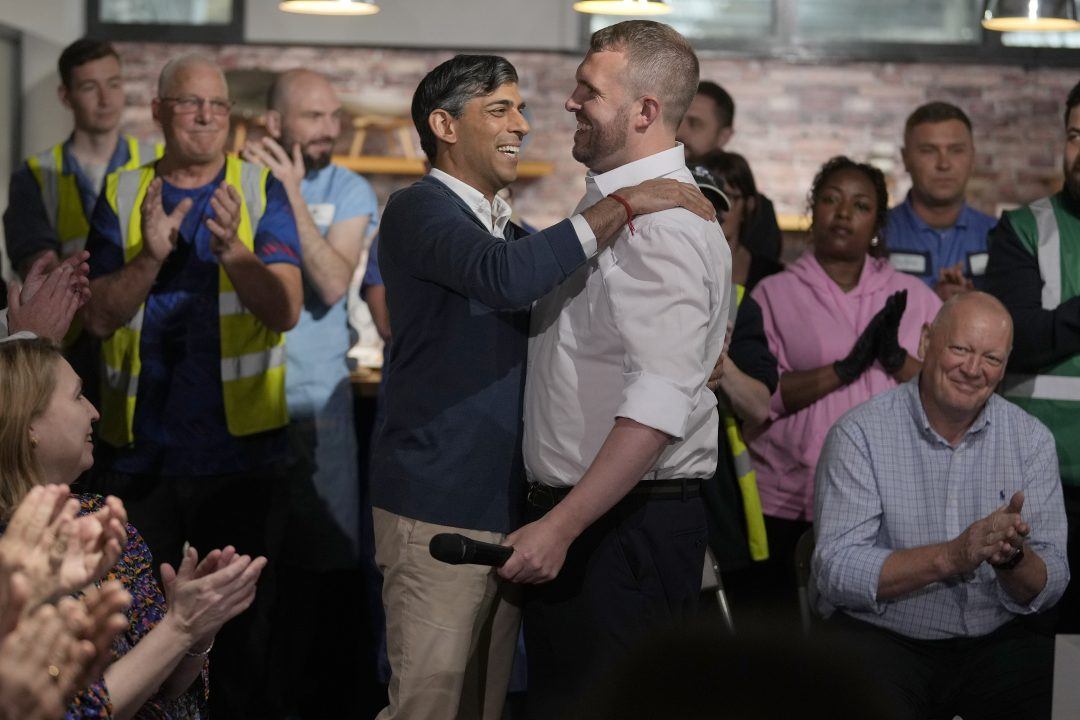 Getty Images
Getty Images













